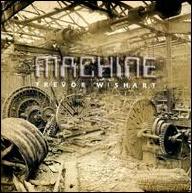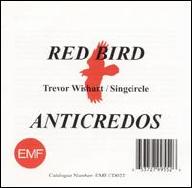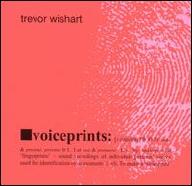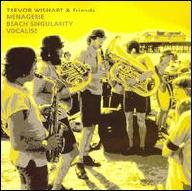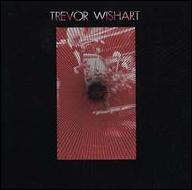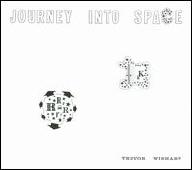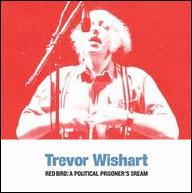Wishart was born 1946 in Leeds, England. He grew up there and would spend most of his working life in Northern England. Little is known about his musical upbringing, but he started to work with recorded sounds in 1969, in reaction to the death of his father. Abandoning traditional composition, he began collecting sounds of machinery.
The 1970s saw him very active, splitting his time between electro-acoustic composition, site specific projects (Beach Singularity, 1977), work with amateur and community groups (he collaborated with Interplay, a team of music street workers), and the development of new workshop techniques. This fertile period yielded Red Bird, a compelling tape work five years in the making (1973-1977) that first expressed his fascination with sound transformation. The piece was awarded a Euphonie d'Or by the Bourges Festival.
During the 1980s, Wishart focused on developing composing tools for the computer. Begun during a passage at the IRCAM studios in 1986, his series of sound transformation software instruments are available as part of the Composers Desktop Project. Wishart's interest in avant-garde music has always been coupled with a desire to create it and the means to make it available to the general public. His software, tailored to be easy-going and resource-savvy, is just another way of achieving his goals.
Composer residencies in Australia, Canada, Holland, Berlin, and the U.S.A. allowed him to introduce his works to different audiences. All the while he developed a series of educational musical games published as -Sounds Fun and -Sounds Fun 2 and later translated in Japanese. Workshops with Contemporary Music for Amateurs, the Firebird Trust, the London Sinfonietta and Sonic Arts Network led to participatory multimedia projects in Japan, Scandinavia, and the U.K.
After a period of writing for the human voice (the Vox cycle), Wishart came back to electro-acoustic composition in the 1990s with Tongues of Fire (Golden Nica at the Ars Electronica competition in 1995) and the Voiceprints cycle (also the title of a CD released in 2000). He is also the author of two books on sound transformation: -Sonic Art (1985) and -Audible Design (1994). ~ François Couture, Rovi
|
1
|
|
Arrival |
|
2
|
|
Imago |
|
3
|
|
Two Women: Stentor |


